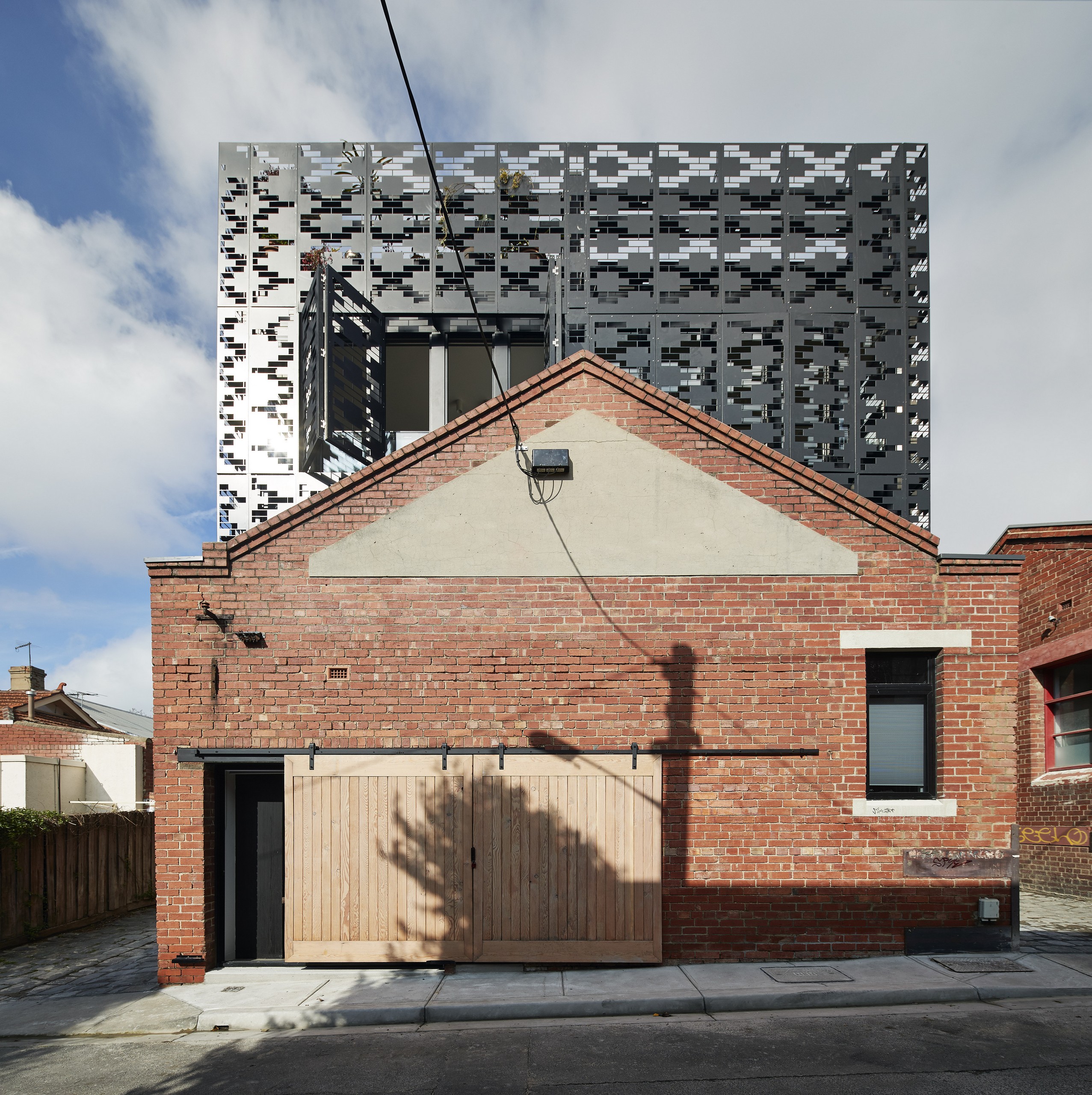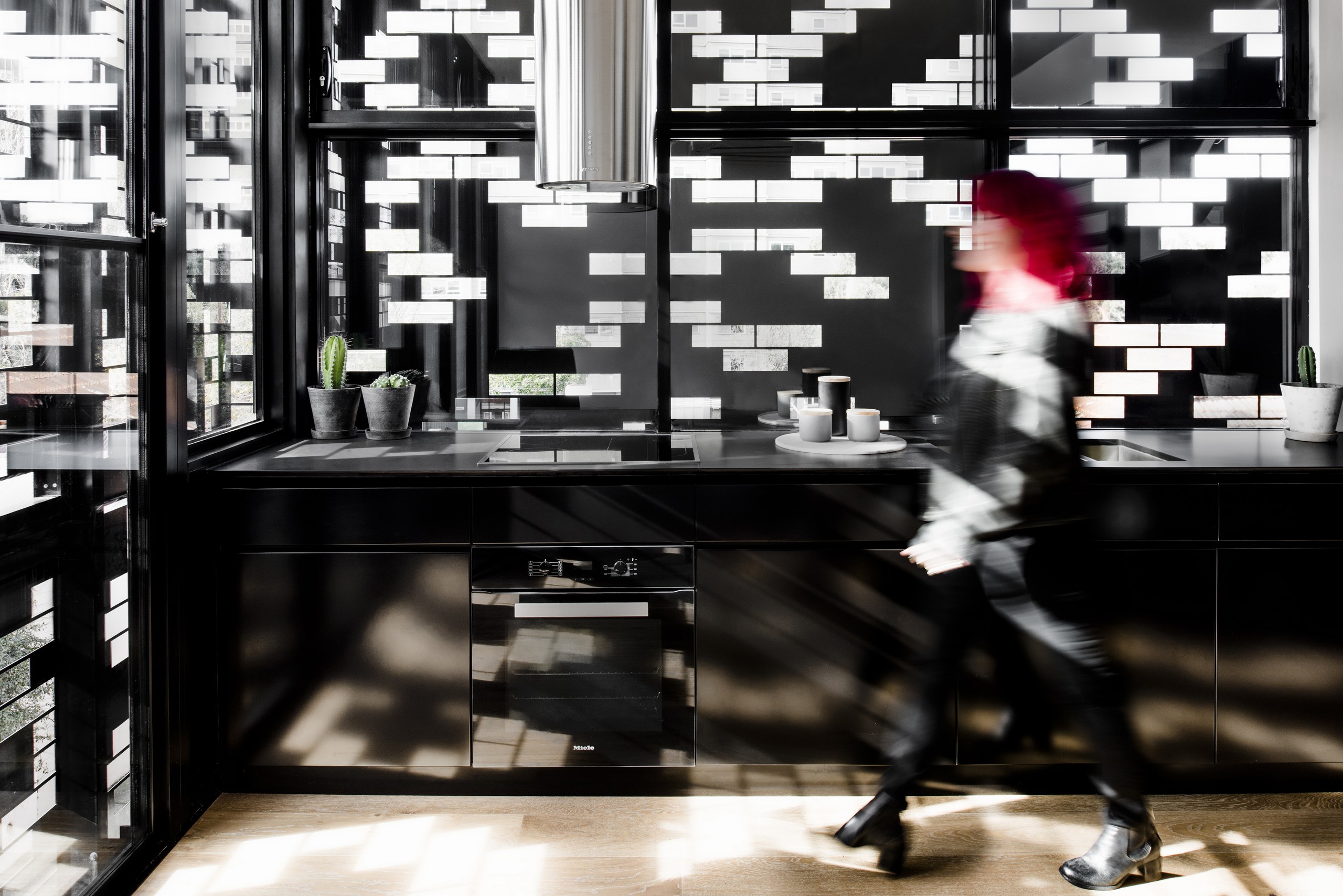Waterloo Street is a juxtaposition of old and new; old fabric, new fabric, old suburbs and new communities.

The design response was carefully crafted to acknowledge and respect the context of the site. The heritage warehouse has been retained, and now forms the base of five townhouses. Solid and secure, the brick base is married to a new insertion, a fully glazed façade clothed in a perforated metal box.
The nearby St. Jude Church was a strong architectural reference point for this project. In particular, the architect referenced the brick quoin pattern of its façade, punching this pattern into the screen. The screen is operable and acts to control views both towards and from the site. Its operability also enables freedom to control daylight and solar access, creating a patterned effect of diffused light within its interior spaces. According to the architect, the choice of metal for the screen was obvious, with its references to the site’s industrial history and previous use of the warehouse.

Each home offers intuitively designed living spaces and private rooftop decks, connecting each dwelling to its community below. The evolution of this building is an architectural response that represents the adaptation of heritage fabric into current thinking about inhabitation, density and liveability.
SUSTAINABILITY FEATURES
This project represents a holistic and pragmatic approach to passive design, with strategic planning and optimal orientation for maximized natural daylight and cross ventilation, plus solar shading and solar panels.
Excellent indoor air quality was achieved by high ceilings and an open plan arrangement with connection to outdoor terraces for increased habitable space. This was complemented by integrated herb and plant shelving behind the perforated façade to provide a green wall visual for both dwellers and the wider neighbourhood in this compact urban development.

